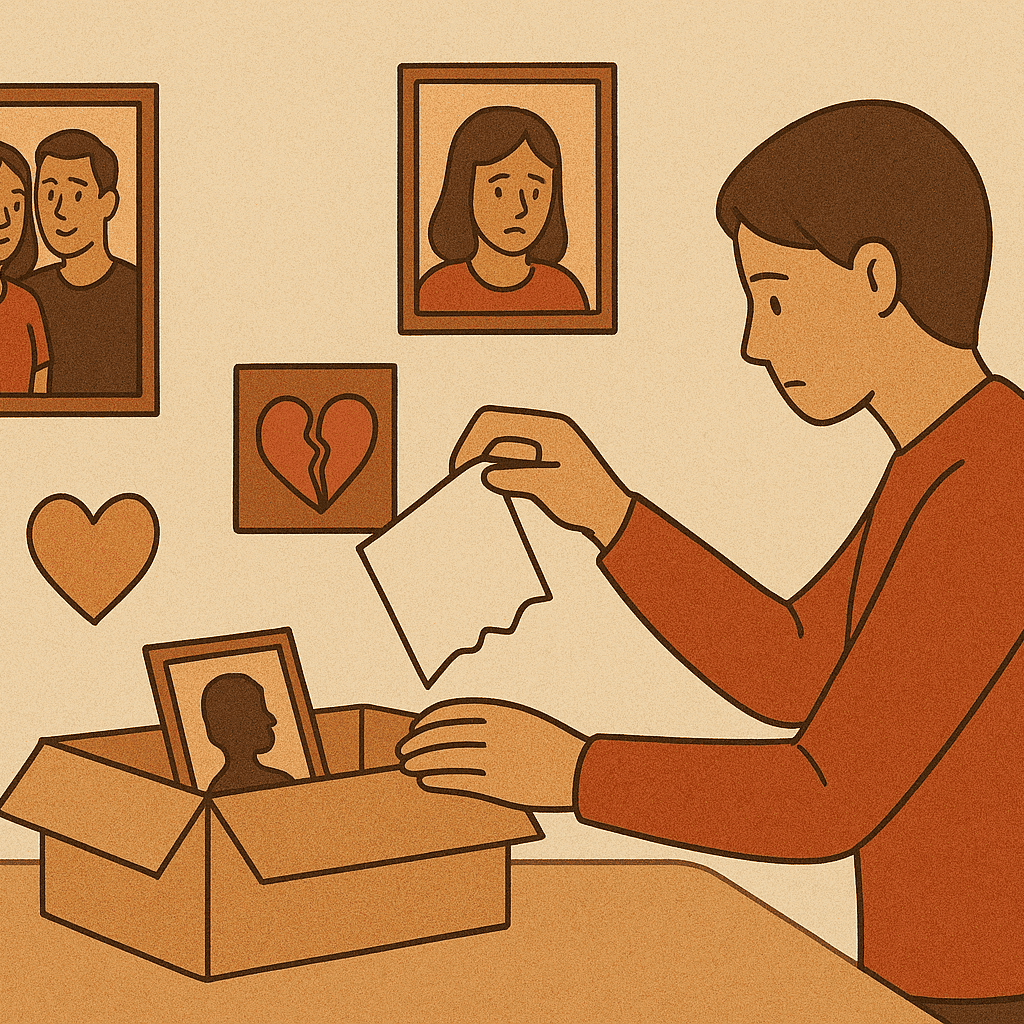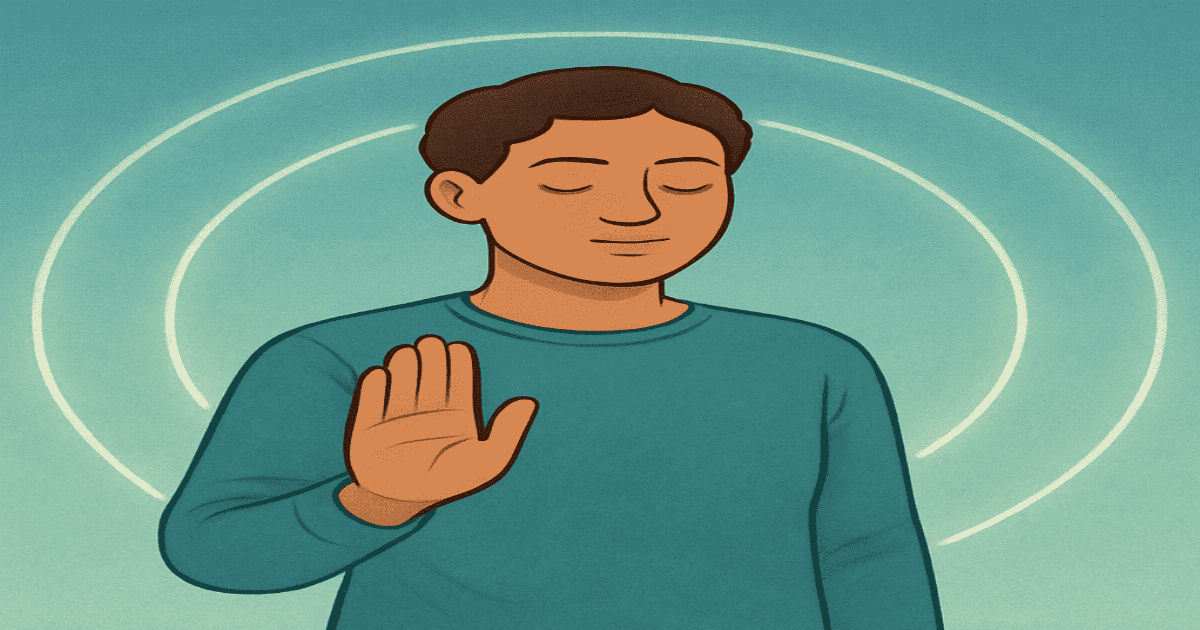When someone you once loved becomes a source of pain, it shakes your entire life. You begin doubting your worth, your instincts and even your ability to heal and love again.
Toxic relationships destroy self-trust, personal identity and emotional well-being.
But you can reclaim your life. Like a forest regrowing after a wildfire, your inner world can flourish again, stronger, wiser and more whole.
This guide offers psychologically grounded, emotionally supportive strategies to help you navigate the path back to yourself.
Understanding the Damage: What Toxic Love Leaves Behind
Toxic relationships leave behind worst memories and patterns. People who have been in toxic relationships mostly become utterly confused, anxious and drained, even the relationship ends.
According to research by Forth et al., (2022) from the National Library of Medicine, dating someone with a toxic personality like manipulation or emotional abuse can result in serious emotional issues like trauma, anxiety and depression.
Some of the common effects include:
- Always blaming yourself or feeling guilty
- Feeling afraid to speak up about your needs
- Doing too much just to keep the peace
- Pulling away from friends or family
- Struggling with sadness, worry, or hopelessness
Healing your life after a toxic relationship has to deal with walking away, facing the pain it left behind and slowly learning how to feel safe and whole again.
1. Cut the Energy Cord, Not Just Contact
It is not always easy to break up from a toxic relationship by simply walking away. Emotional and psychological bonds can linger. This emotional bond can be strong, especially if the relationship had intense ups and downs. This is called trauma bonding.
The PsycheShare article on What Is Trauma Bonding and How Can You Break Free?, explains how these emotional bonds form and how to slowly let go of them through support, therapy and small daily choices.
Here are some gentle ways to break emotional attachments:
- Write down the truth of what happened, do not let your mind continuously romanticise about the past
- Block, mute, or delete any contact that keeps pulling you back
- Be firm on “no contact” or “low contact,” though it might be hard at first
- Redecorate your space, reorganise things, repaint, or remove things that remind you of them

2. Start Listening to Yourself Again
Toxic relationships can make you lose faith in yourself. You might have been blamed, Gaslit, manipulated, told that you are “too sensitive,” or told your feelings were wrong. Now is the time to reconnect with your inner voice. The one that knows what feels safe, kind and true.
The World Health Organization shares that those who have been victims of emotional abuse struggle with sadness or numbness. But healing is possible with the right psychological support.
Here are some simple ways to reconnect with yourself:
- Keep a journal to write out your thoughts and feelings
- Remind yourself that all emotions, the sadness, anger, or relief are all valid
- Start saying “no” to things that do not feel right
- Notice how your body reacts to cues like tense shoulders, tired eyes, or gut feelings can guide you
You are not becoming someone new, you are remembering who you were before the distortion and evolving from that place.
3. Build Healthy Boundaries From the Inside Out
Boundaries are not walls. They are doors with locks, opened only to those who respect your space. They are healthy lines that tell others how you would like to be treated. In toxic relationships, boundaries often get ignored or broken, which makes you feel unsafe.
After a toxic relationship, setting boundaries might feel selfish, awkward or even scary but it is essential.
The PsycheShare post How to Set Healthy Relationship Boundaries gives helpful examples of what strong boundaries look like and how to use them with confidence.
Begin by naming your personal limits and defining your non-negotiables. For example:
- I will not stay in conversations where I am insulted
- I will take time alone when I need it
- I will keep people close who lift me up, not tear me down

4. Be Kind to Yourself Every Day
Healing occurs in series of small decisions to be kind to yourself. Every time you treat yourself with kindness, you take another step forward.
The PsycheShare post The Science of Self-Love or Self Compassion explains how everyday kindness to yourself can slowly rebuild your self-esteem and help you feel whole again.
Here are easy ways to show yourself compassion:
- Talk to yourself like you would talk to someone you love
- Forgive your past self, you did your best with what you knew
- Rest when you need to, without guilt
- Celebrate your small wins, even if no one else sees them
Your healing matters even on the quiet days.
5. Learn to Let Go of Old Habits
Many people who end up in toxic relationships are used to giving too much and asking for too little. You may always try to fix others, avoid conflict, or please everyone. These habits are signs of codependency.
The PsycheShare post “How to Identify and Leave a Codependent Relationship” explains how to recognise this pattern and gently change it.
Some steps include:
- Accept that it is okay if others feel upset with your boundaries
- Let go of the need to “save” people, you are not responsible for their healing
- Focus on what you need, not just what others want
- Choose people who make you feel safe, not people you need to “fix”
6. Find What Brings You Purpose
Once the chaos is over, many people feel empty or unsure. You may ask, “Who am I without this relationship?” This is a normal part of healing.
A study by Villarejo-Carballido et al., (2022) showed that when people take time to talk about and reflect on toxic experiences, it helps them rebuild their sense of self.
Finding your purpose can start small like:
- Trying something new that excites or calms you
- Reconnecting with people who accept you as you are
- Setting one small goal each week to build confidence
- Help someone else in a way that feels natural
Sometimes purpose feels like joy. Sometimes it feels like quiet peace. Both are beautiful. You do not need to rush into new relationships. Instead, explore your values, goals, and joys first.
You Deserve a Life That Feels Like Yours Again
You may not feel fully healed yet and that is okay. Healing after a toxic relationship takes time, patience and love. There will be good days and hard days. But every small choice you make to care for yourself matters.
You are not broken. You are brave. And the life ahead of you is still yours to shape.
You have already started the journey back to yourself and that is the most powerful step of all.
REFERNCES
Bedjabeng, C. A. (2025, July 18). What is trauma bonding and how can you break free? PsycheShare. https://psycheshare.com/what-is-trauma-bonding-and-how-can-you-break-free/
Bedjabeng, C. A. (2025, July 30). The psychology behind gaslighting: Recognise and recover. PsycheShare. https://psycheshare.com/the-psychology-behind-gaslighting-recognise-and-recover/
Bedjabeng, C. A. (2025, May 22). How to set healthy boundaries with family and friends. PsycheShare. https://psycheshare.com/how-to-set-healthy-boundaries-with-family-and-friends/
Bedjabeng, C. A. (2025, July 7). The science of self‑love or self‑compassion. PsycheShare. https://psycheshare.com/the-science-of-self-love-or-self-compassion/
Bedjabeng, C. A. (2025). How to identify and leave a codependent relationship. PsycheShare. https://psycheshare.com/how-to-identify-and-leave-a-codependent-relationship/
Forth, A., Sezlik, S., Lee, S., Ritchie, M., Logan, J., & Ellingwood, H. (2022). Toxic relationships: The experiences and effects of psychopathy in romantic relationships. International journal of offender therapy and comparative criminology, 66(15), 1627-1658.
Villarejo-Carballido, B., Pulido, C. M., Zubiri-Esnaola, H., & Oliver, E. (2022). Young people’s voices and science for overcoming toxic relationships represented in sex education. International Journal of Environmental Research and Public Health, 19(6), 3316.
World Health Organization. (2025). Depression. https://www.who.int/health-topics/depression



Add a Comment